No products in the cart.
Hair Care Guide
6 symptoms of allergic reaction to hair extensions
Do you know about Symptoms of allergic reaction to hair extensions? While hair extensions make you look excellent and suitable for most people, some people feel a little uncomfortable when using hair extensions, especially when it starts to cause an allergic reaction, but which usually isn’t severe.
If you are a beginner using hair extensions, read this article until the end. In this post, Jen Hair will dive into symptoms of allergic reactions to hair extensions to give you a deeper understanding of the common signs, severity, and causes of allergic reactions to hair extensions.
Can you be allergic to hair extensions?
The answer to this is yes. You can be allergic to hair extensions. Although allergies to hair extensions are rare, there are a few cases and several different reasons. The cause of an allergic reaction will have more to do with the type of hair extension than the hair itself.
1. Allergy to the glue in the hair extension
If you feel that you are having a reaction to the hair extension and you are using the glue method, this could be a reaction to keratin, (the glue-like substance used in the hair extension to secure the hair extension).
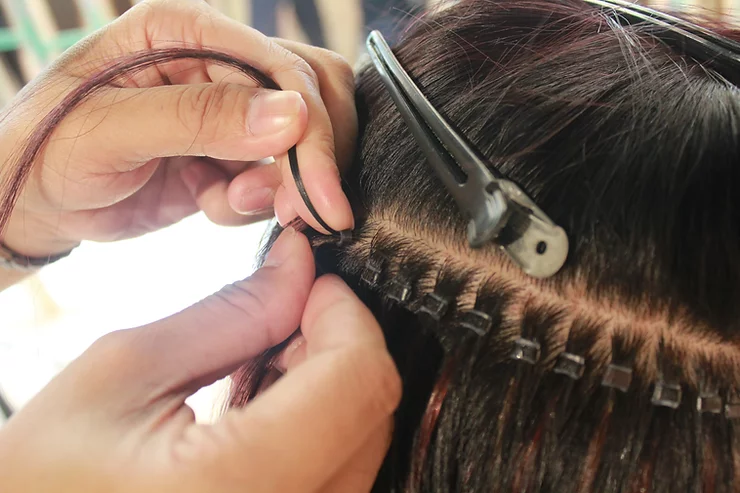
2. Allergy to micro ring hair extensions
Microring hair extensions and nano ring hair extensions are two other common mentions regarding allergic reactions to hair extensions. These two hair extensions are installed by tying different-sized metal rings near your hairline into strands, which can cause problems for people with metal allergies.
3. Allergy to synthetic hair extensions
The quality of synthetic hair is not as reliable as human hair and can cause allergic reactions. Synthetic fragrances, preservatives, hair dyes, bleaches, and other chemicals used on synthetic hair extensions to make them look more real and healthier can cause these allergic reactions.
In case you feel discomfort during your hair extension, you should contact hair extension experts, who will have the expertise and experience to determine the cause and find a solution for you
What are the symptoms of allergic reaction to hair extensions?
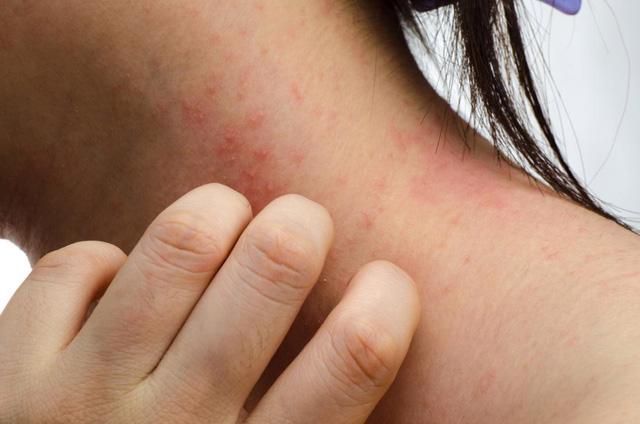
Symptoms of an allergy vary from person to person. It is important to be aware of changes that may occur when you have just tried a hair extension. Sometimes, if allergies are not treated quickly enough, deeper problems can arise. Some allergy symptoms can vary from person to person and the type of hair extensions include:
- Itching and irritation on the scalp. Recommendation: Effective ways to relieve itchy hair extensions
- Redness and inflammation at the nape of your neck or wherever the hair extensions touch your skin.
- Swelling and redness of the skin.
- Small bumps where the skin frequently comes in contact with the hair extensions.
- Worse reactions may include symptoms such as headaches and vomiting.
- Allergies can be cured by taking allergy medicine, but you need to see your doctor if you have symptoms that the medicine cannot cure.
How to reduce allergic reaction symptoms?
If you’re experiencing allergic reaction symptoms to hair extensions, there are several ways to reduce them.
1. Remove the extensions
The first step is to remove the extensions as soon as possible to prevent further irritation. This will stop any further irritation and prevent the allergen from continuing to come into contact with your skin.
2. Rinse the scalp
Rinsing your scalp and hair with cool water can help soothe any inflammation and reduce itching. Avoid using hot water, as this can further irritate your skin.
Don’t forget to use a gentle, hypoallergenic shampoo to cleanse your scalp and hair. Avoid using any products that contain harsh chemicals or fragrances, as these can further irritate your skin. A good product you can count on SheaMoisture Intensive Hydration Shampoo, which contains natural ingredients like Manuka honey and Mafura oil to moisturize, repair, and strengthen hair.

3. Wash your hair extensions regularly
Washing your hair extensions regularly is an important step in reducing allergic reaction symptoms to hair extensions. Dirt, oil, and other irritants can accumulate on the extensions and cause inflammation and itching, which can worsen an allergic reaction. Additionally, clean hair extensions are less likely to cause scalp irritation, which can also reduce the risk of an allergic reaction.
4. Apply a cold compress
Applying a cold compress to the affected area can help reduce swelling and ease discomfort. You can use a damp towel or an ice pack wrapped in a towel for this step. Apply the compress for 10-15 minutes at a time, several times a day.
If your symptoms persist or worsen, it’s important to consult a dermatologist. They can help determine the cause of your reaction and recommend appropriate treatment options. They may also prescribe a topical or oral medication to help reduce your symptoms.
Remember, it’s important to take any allergic reactions to hair extensions seriously and seek medical attention if your symptoms are severe or persistent. By following these steps, you can help reduce your symptoms and promote healing.
FAQ on symptoms of allergic reaction to hair extensions
1. Can you be allergic to real hair extensions?
Human hair is a type of hair extension that is less likely to cause you an allergic reaction because it is made of real hair. Our immune system is in constant contact with the keratin in our skin and hair, so we never develop an allergic reaction to the keratin in our hair. So the allergic reaction of human hair extensions is caused by the installation method, the tightness of the installation, the product used and the installation time.
2. Why is my head so itchy with extensions?
There are a number of different causes of itching, including the following:
Scalp sensitivity can cause hair extensions to itch: If you have a sensitive scalp, it may take you a little longer than someone with a less sensitive scalp to adapt to new hair extensions. Hair extensions will add weight to your scalp, as an average hair extension weighs about 100g. Your head has quite a bit of hair to support, and so for the first few days, your scalp can become overactive as it tries to cope with the sudden change to normal.

Wrong care after hair extensions: Itching is caused by shampoo not being rinsed out of hair extensions correctly, resulting in the dirt, debris, and styling products that can build up around or under your extension attachment. You just need to spend more time rinsing your hair after washing and conditioning it, to make sure all the residue is completely washed away.
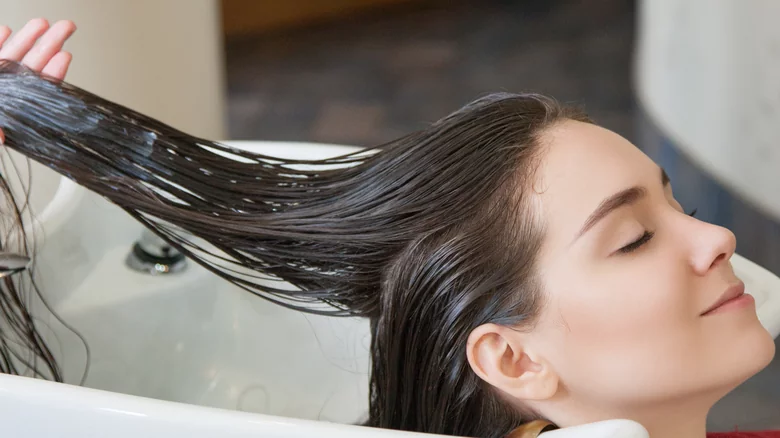
Hair extensions not installed correctly: This is a fairly common problem, as if not done correctly, the hair extension can be pressed too close to the scalp, putting a lot of pressure on the hair, and causing discomfort and pain. If your extensions feel like they’re being stretched, talk to a professional and have them check it out right away.
Final thoughts
Although an allergy to hair extensions is usually not serious, you shouldn’t put up with this discomfort. Instead, identify the root cause to help you prevent and alleviate these extension troubles. Besides, consider using natural hair extensions from top-quality brands like Jen Hair.
Jen Hair’s hair extensions products are sold by major hair salons and retailers from Europe to North and South America. We are committed to using only remy hair which is high quality and clearly traceable.

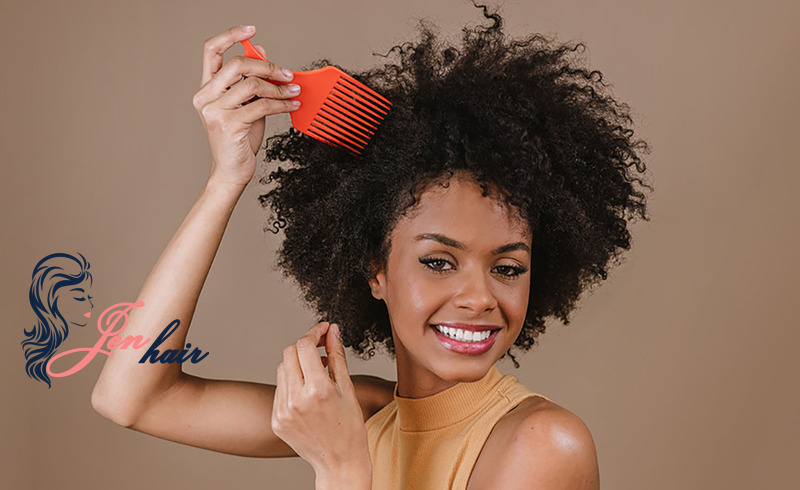 Guide Cornrows With Side Part The Best For Beginner
Guide Cornrows With Side Part The Best For Beginner Ultimate Guide: Headband with Hair Attached (Best Styles for 2025)
Ultimate Guide: Headband with Hair Attached (Best Styles for 2025)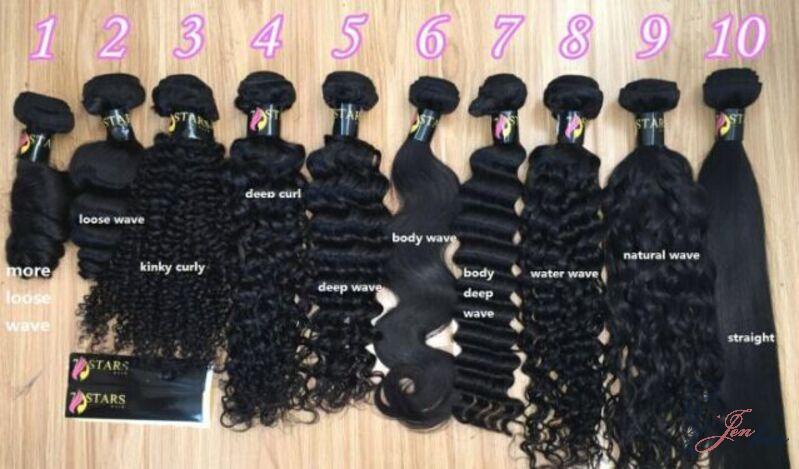 Top 7 Premium Human Hair Clip In Extensions For Black Hair
Top 7 Premium Human Hair Clip In Extensions For Black Hair
